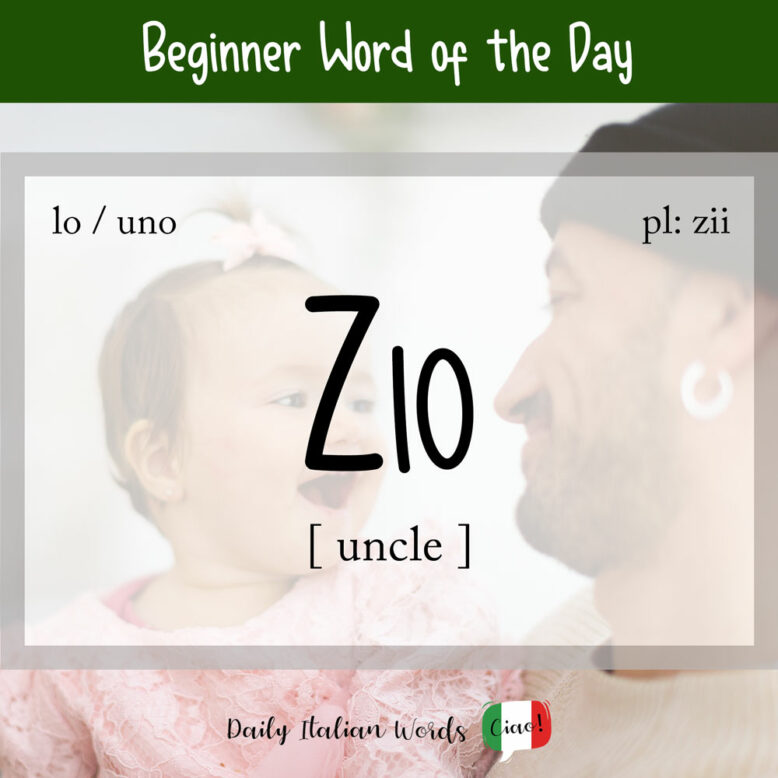The word for uncle in Italian is zio (masculine, plural: zii).

It comes from the Latin word thius and, as in English, is used to describe the brother of one’s mother or father, or the husband of one’s aunt (zia).
Mio zio abita in Canada da dieci anni.
My uncle has lived in Canada for ten years.
Prozio is the word for great-uncle, or the uncle of one of your parents.
We all know that Italian is abundant in colourful expressions that would not make any sense in English if translated literally, and three of them happen to be:
- Zio cane! (Dog uncle!)
- Porco zio! (Pork uncle!)
- Per zio! (For uncle!)
The first two are similar in meaning to Damn it! in English, whereas the last means For goodness’ sake!
Although zio is a euphemism for Dio (God) in these three cases, none of them are very polite and could still be considered blasphemous by the religious among us. For this reason, they should only be used colloquially amongst close friends.
O per zio, non cominciare!
Oh for goodness’ sake, don’t start!
Another slang expression that you may hear in Northern Italy, and more specifically the Milano area, is Bella, zio! Used between young people, it is a somewhat unsophisticated way of approving what your male friend has said or done. In this case, zio is similar to dude (US) or mate (UK) in English.
Did you know that…?
In some regions, specifically the south, zio is also a respectful title given to elderly people or priests. It is often truncated to zi’.
Heather Broster is a graduate with honours in linguistics from the University of Western Ontario. She is an aspiring polyglot, proficient in English and Italian, as well as Japanese, Welsh, and French to varying degrees of fluency. Originally from Toronto, Heather has resided in various countries, notably Italy for a period of six years. Her primary focus lies in the fields of language acquisition, education, and bilingual instruction.


